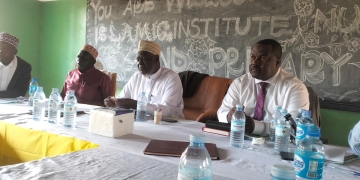
Kampala, Uganda (UG STANDARD) – Uganda is embarking on an ambitious journey to become a major player in nuclear energy production, with the government announcing plans to generate 24,000 MW of electricity from nuclear power by 2040.
The East African nation is betting big on nuclear energy to drive its economic growth and reduce its reliance on traditional energy sources. The government has identified nuclear power as a key component of its energy strategy, and is investing heavily in the development of nuclear infrastructure.
At the heart of Uganda’s nuclear ambitions is the Buyende Nuclear Project, a massive undertaking that will see the construction of a nuclear power plant in the eastern district of Buyende. The project is expected to generate 8,400 MW of electricity, making it one of the largest nuclear power plants in Africa.
The Buyende Nuclear Project is part of a broader national target to generate 52,481 MW of electricity by 2040, with nuclear power accounting for 24,000 MW of that total. The project is expected to cost billions of dollars and will require the resettlement of over 25,000 people.
The Ugandan government has appointed Currie Consultants Limited (CCL) to conduct a resettlement action plan (RAP) study, which will evaluate the socio-economic impacts of the project and ensure fair compensation for affected communities.
“The Buyende Nuclear Project is a critical component of Uganda’s energy strategy, and we are committed to ensuring that it is implemented in a responsible and sustainable manner,” said Irene Bateebe, Permanent Secretary in the Ministry of Energy and Mineral Development.
The use of nuclear power is expected to play a key role in Uganda’s economic development, providing a reliable source of electricity for industries and households. However, the project has also raised concerns about the potential risks associated with nuclear power, including the disposal of radioactive waste and the risk of accidents.
The Ugandan government has assured the public that all necessary safety measures will be taken to ensure the safe operation of the nuclear plant. The government has also established a nuclear regulatory authority to oversee the development of nuclear power in the country.
As Uganda embarks on its nuclear journey, it is likely to face significant challenges and opportunities. But with its ambitious plans and commitment to nuclear energy, the country is poised to become a major player in the global nuclear energy market.










